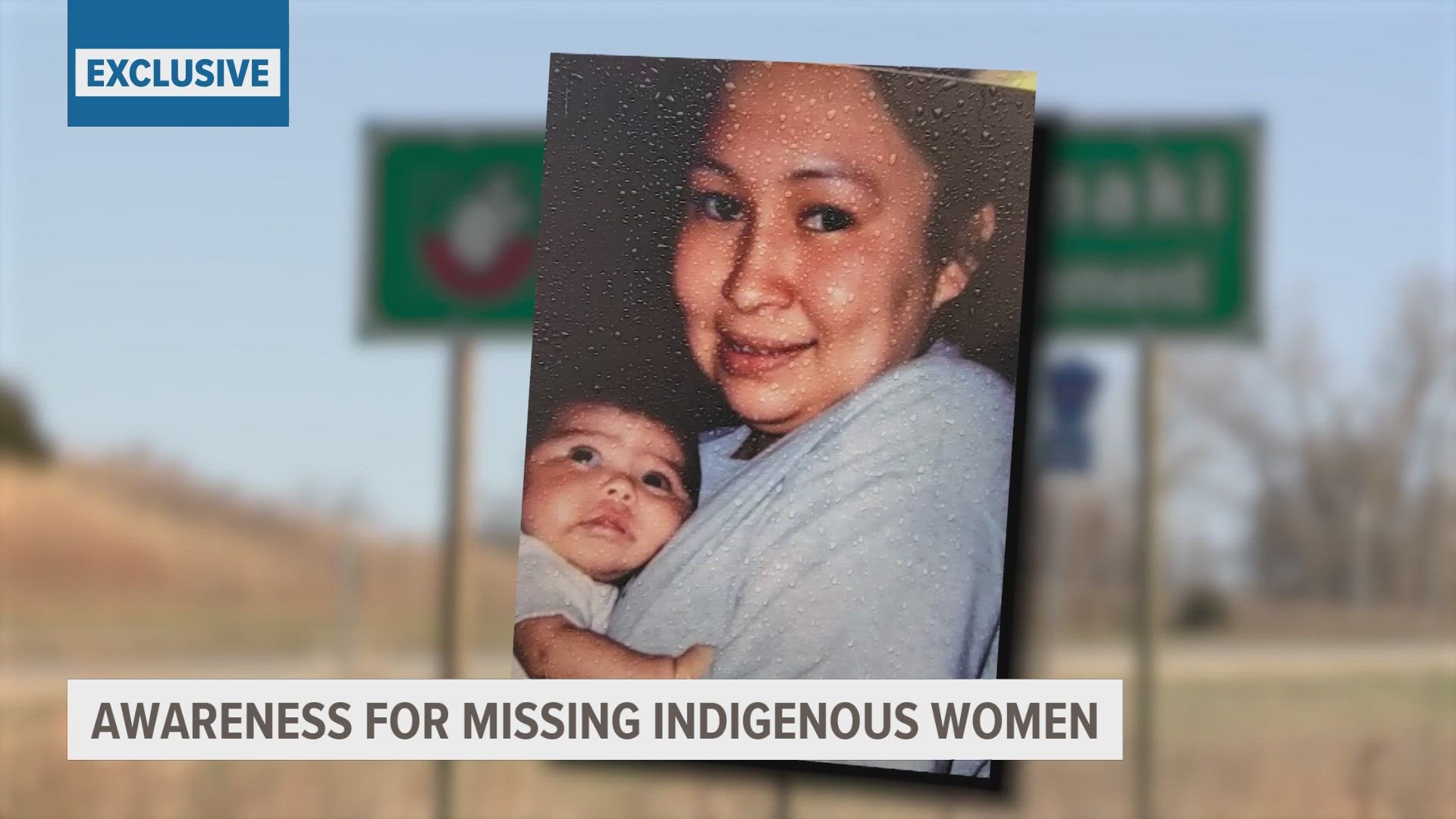TAMA COUNTY, Iowa — More than five thousand Native American women are classified as missing, according to recent data from the National Crime Information Center. This includes a case in central Iowa that remains unsolved.
Local 5's Laryssa Leone traveled to the Meskwaki settlement where she received rare access and the opportunity to talk to a family who say their daughter is more than a number and deserves to be found.
It's been over 3,200 days since Iris Roberts last saw her daughter, Rita Papakee.
"I think about her all the time, every day," Roberts said.
She remembers the first day Rita disappeared in 2015 like it was yesterday.
"She said, 'just go drop me off at the casino,'" Roberts said. "I said, 'Okay', backed up, dropped her off in the front."
What Roberts thought was an ordinary day turned into the beginning of an extraordinary mystery.
"She said 'Love you guys, I'll see you', and we said, 'See you, love you'," Roberts told Local 5. "Then she walked in to a dark casino, and that was the last time we seen her."
The Roberts called the police for help, filed a missing person's report and waited patiently for days, weeks and months, but received no answers.
"Then they had the FBI, DCI, involved and they were coming around at first, you know, trying, they said tried to find her but," Roberts shared.
RELATED: Native American translations are being added to more US road signs to promote language and awareness
With state and federal help, the search for Rita expanded, but despite additional resources, she remained missing. Her aunt, Oona Youngbear, feared the worst.
"Having other people come in and, you know, with their horses and dogs and they had a helicopter out one point. and then I think it started to sink in, you know, that she was missing," Youngbear said.
After years with no results, Rita's case eventually went cold, leaving her family to search for Rita alone.
That is until November of 2022, when the Bureau of Indian Affairs told the family of its intention to revisit Rita's case.
"I said well, at least somebody showing an interest," Roberts said. "Somebody's, you know, stepping forward and try to find her."
New hope, a second look for answers, that ended with the same results as the first search.
"Later on, they would tell me they were looking around and they brought dogs and going over new places, but they said they didn't find anything," Roberts said.
The Roberts family has heard the rumors around the settlement about what may have happened to Rita, but nothing has been confirmed.
As for Youngbear, she keeps praying her niece will come home.
"There are some people today that say that they think she's been kidnapped. and she's, you know, somewhere, and, and they feel that she's going to be found, but I don't know," Youngbear said. "Sometimes, I think, you know, that would be great if we did, but then again, I just have this feeling that she's gone."
Rita's aunt, mother, father and siblings aren't the only family members carrying the burden of her disappearance. Rita had children. One of them was just six years old when his mother vanished.
"He used to bring stuff all the time, and he would say, 'Put that away. When my mom comes back, we'll show her'," Roberts said. "But then eventually that quit. and right now he's 16."
Along with the pain of loss, there is a sense of frustration shared by family members.
"They think that indigenous women don't matter," Roberts said. "That's the feeling I get, that they probably just think, 'Oh, wow, it's another Indian, you know, just another native'."
The United States' data on missing and murdered Indigenous women is often questioned by Indigenous communities, who believe the numbers may not reflect the truth of how prevalent these cases are.
However, recent years have seen an increase in awareness across the country with many activists and community members working to ensure Rita and other missing Native American women aren't forgotten.
"When we went to Minneapolis, there's a lot of people that are marching that are non-Native, so that makes me feel good," Roberts said.
That increase in awareness gives Rita's aunt a glimmer of hope for the future.
"Maybe now with this movement that they have. . . people are starting to know, you know, what is really happening with the Native women," Youngbear shared.
No matter what has happened to Rita, her mother simply wants answers, closure and the chance to properly say goodbye.
"There's still some stuff we have to do for her with our customs, our culture that we have to do for her," Roberts said. "My brother said we can't do it 'til we find her, then we can do what we need to do, but she's got to be found."
In the family's determined quest to find Rita, her family's cultural rituals and customs will wait, a testament to the profound connection between love and tradition.
If you have any information about Rita's whereabouts, investigators encourage you to reach out to the Meskwaki Police Department.

